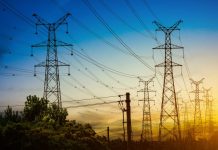ISLAMABAD: Pakistan’s manufacturing industry has seen an uptick in output during the first half of the current fiscal year, indicating that the economic growth was gaining sustainability after the Covid-19 pandemic shocks, WealthPK reported.
According to the Pakistan Bureau of Statistics (PBS), the production increased in textile, tobacco, leather products, food, beverages, coke and petroleum products, fabricated metal, automobile, machinery and equipment, iron and steel products, paper and board, chemicals and furniture in the first half of the current fiscal year (1HFY22) as compared to the 1HFY21.
On the other hand, production decreased in pharmaceuticals, electronics, rubber products and fertilisers.
Textiles
According to PBS statistics, textile and clothing exports grew 26% year-on-year to $9.38 billion in the first half (July-December) of this fiscal year from $7.44 billion in the corresponding period of last year, according to WealthPK.
Imports of textile machinery jumped 88.24% in July-December, reflecting expansion or modernisation in the industry.
The government’s supportive policies, which include the introduction of regionally competitive energy tariffs, the elimination of duty and taxes on industrial raw materials, a lower interest rate, and the payment of pending refunds to exporters, have resulted in a stronger export capacity in Pakistan’s textile industry.
The government has also approved the Textiles and Apparel Policy (TAP) 2020-25, which aims to increase the country’s export target up to $42 billion. The policy targets to increase textile exports to $27 billion in the fiscal year 2022-23, to $34 billion in fiscal year 2023-24, and to $42 billion in the fiscal year 2024-25.
Adviser to Prime Minister on CPEC, Khalid Mansoor, has said a Chinese textile company is interested in building a special economic zone with an investment of $250 million.
Automotive Industry
According to Pakistan Automotive Manufacturers Association (PAMA), the total car sales expanded to 114,765 units in 1HFY22 as compared to 67,026 units in 1HFY21. December sales rose to 24,462 units from 15,351 units in November 2021.
The sales of trucks, jeeps, pick-ups and tractors also showed an increasing trend in 1HFY22 in comparison with the corresponding period of last year.
China has allowed Pakistani stakeholders to import automobile parts and kits at reasonable prices under the China-Pakistan Economic Corridor.
The auto industry accounts for 4% of the country’s GDP, contributing Rs50 billion ($470 million) to the national exchequer. It employs more than 3.5 million people.
Furniture
Pakistan’s furniture industry has great potential to dominate world markets with advanced designs and contribute considerably to exports. However, the industry needs proper incentives and facilitation for boosting exports.
According to PBS, furniture exports expanded to 466,000 pieces in the first half of the fiscal year 2022 compared to 67,000 in 1HFY21, registering an astronomical 596% increase.
During the period under review, furniture worth $3.998 billion was exported compared to exports of $1.545 billion during the corresponding period of last year, according to WealthPK.
In 2022, the global furniture market is predicted to generate $715 billion in revenue. The market is estimated to expand at a 4.79 % annual rate (CAGR 2022-2026).
China hopes to maintain a stronger economic and investment relationship with Pakistan by strengthening trade links with Pakistan’s furniture Industry.
A spokesperson for Pakistan-China Joint Chamber of Commerce & Industry (PCJCCI) told WealthPK that a conference titled ‘furniture industry online/offline promotion’ was organised on January 18 to encourage the in-depth cooperation between the Dezhou furniture industry and its Pakistani counterparts.
Prime Minister Imran Khan held important meetings with top Chinese leaders and the business community during his recent four-day visit to Beijing and signed several memoranda of understanding.
The objective was to encourage Chinese enterprises to set up businesses in Pakistan, enhance labour productivity, improve skills development, and promote mutual development.
INP





